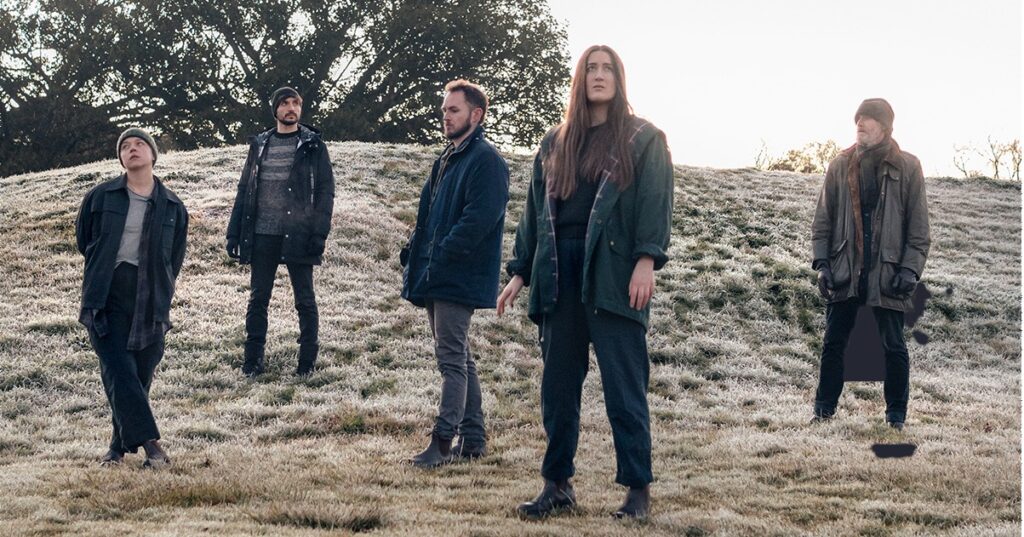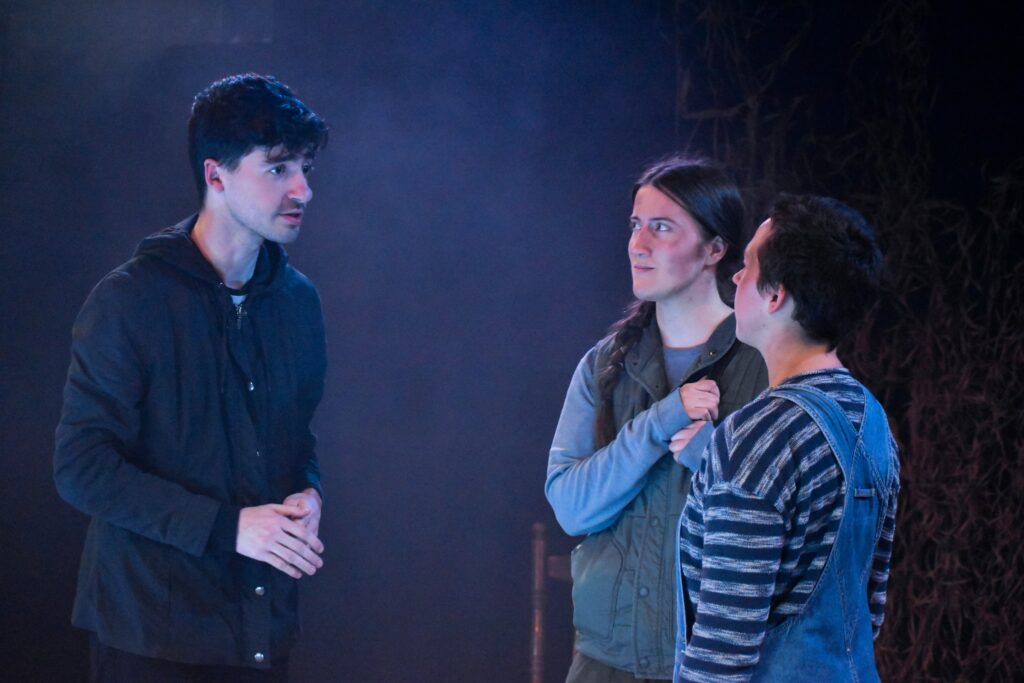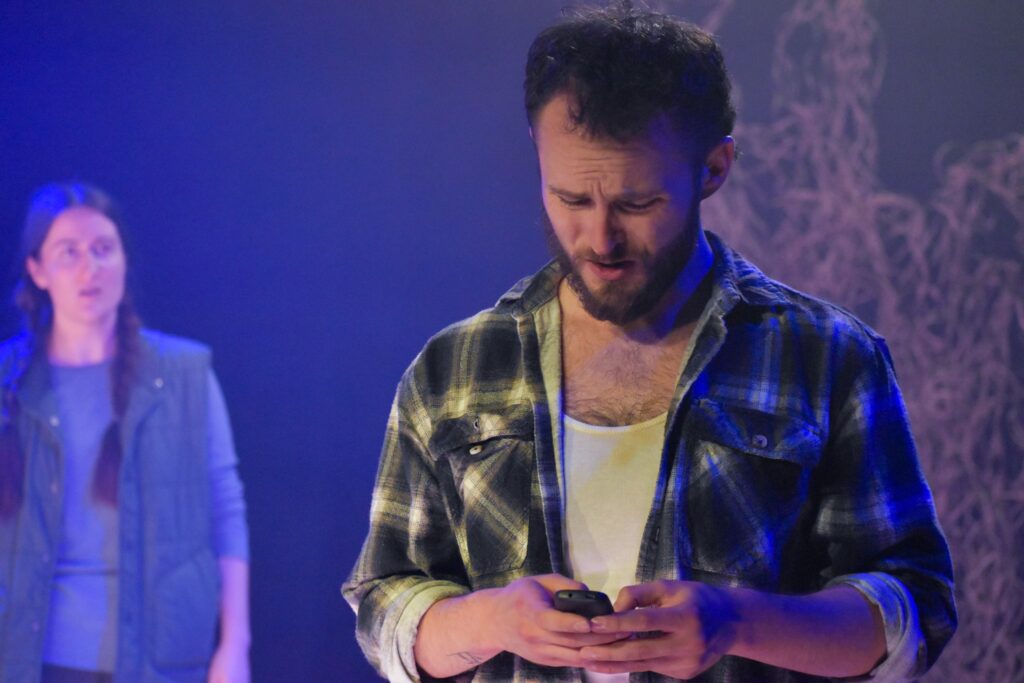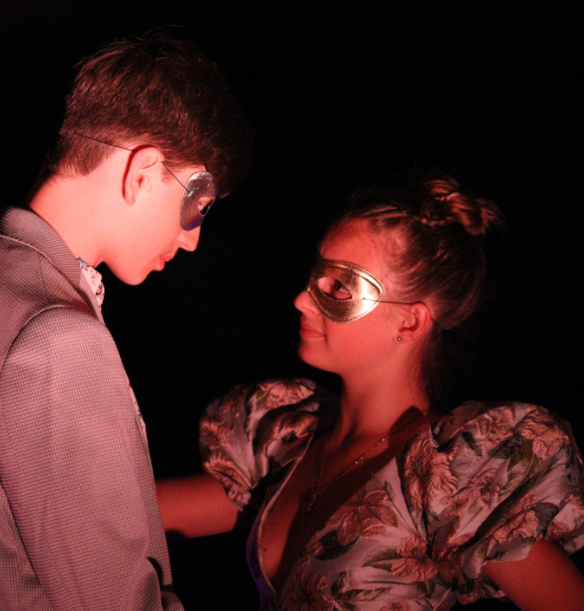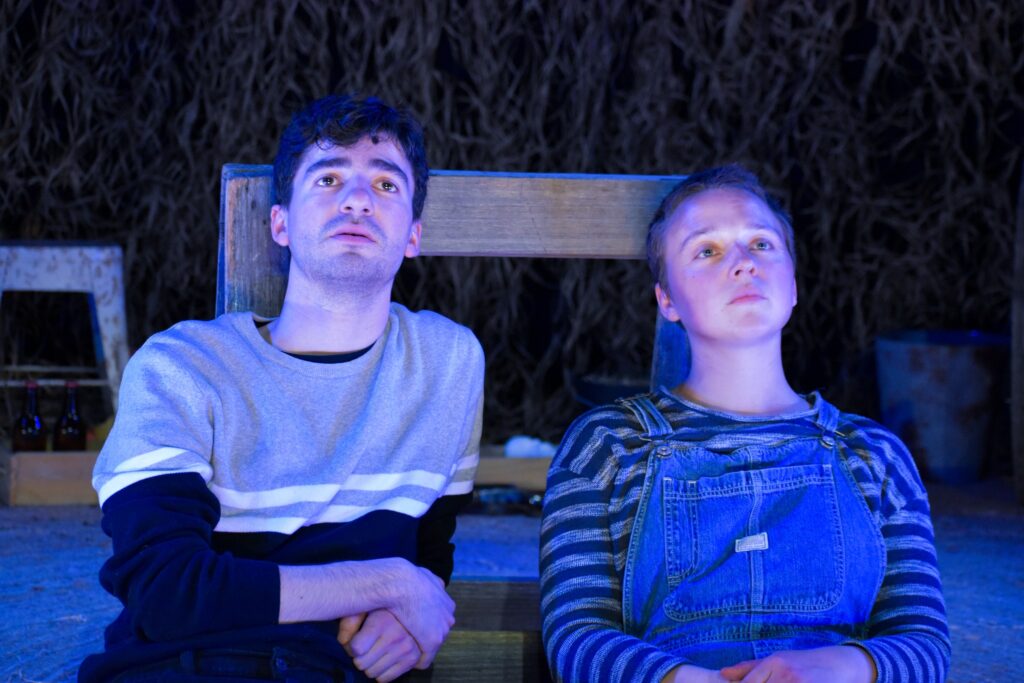
‘Gundog’ // Three Fates Theatre
‘Gundog’ was affecting.
The passage of time is an interesting thing. We all have moments where we think ahead to what our future will be like. Sometimes it turns out exactly as we planned. Many times, however, it will be something different. Then there are the habitual periods of status quo that seem to last an eternity. It can be easy to look at these times as monotonous; but they also can provide insight into who we are and how we live our lives. Three Fates Theatre’s latest production ‘Gundog’ explores this very idea, demonstrating the blissful highs and devastating lows of sameness.
Presented at the iconic Chapel Off Chapel, Three Fates Theatre’s ‘Gundog’ marks the production’s Australian premiere. Penned by British playwright Simon Longman in 2017, ‘Gundog’ was first performed in January 2018 by the English Stage Company at London’s Royal Court Theatre. Longman was awarded the 49th George Devine award for Most Promising Playwright that same year.
Drawing inspiration from his childhood growing up in the pastoral West Midlands countryside, Longman’s ‘Gundog’ is a quaint family drama about loss, resilience, and the need for human connection. While the play offers an introspective look at one family’s life, the feeling of minuteness it presents is universally comprehensive. Longman may have written ‘Gundog’ pre-COVID, but the feeling of isolation and loneliness the play permeates into the audience feels timelier than ever.
For a show that focuses on the transition of time so heavily, making it feel timeless is a real feat. Thankfully, Chapel Off Chapel rises to the challenge. Set Designer Freya Allen transforms The Loft Theatre into a makeshift Yorkshire farm through her resourceful staging. White pillow cases doubling as sheep line the stage’s edge. Wooden barrels and large coils frame the set’s perimeter, a nod to the quaint simplicity of rustic living. Flakes of hay are spread across the stage’s floor, providing the atmosphere of a dust-laden, unforgiving territory. Audiences are likely to find beauty in the simplicity of Allen’s set design. With the concept of making do with what one has available being so pertinent to ‘Gundog’, the ingenuity Allen demonstrates through her staging is both complementary and commendable.
Working in tandem with Allen’s set is the design of Harrie Hogan’s lighting, Sam Porter’s sound, and Zoe Hawkins’ costuming.
Hogan crafts a rural atmosphere through the use of muted earthy lighting tones. Yellows and soft reds plaster the faces of performers throughout ‘Gundog’, emphasising the physical – and mental – toll harsh manual labour can have upon a person. While Hogan’s lighting remains relatively nuanced throughout ‘Gundog’, her literal shining moments are during the yearly transition montages. The circular flashing of stage lights are reminiscent of the earth’s rotation around the sun, a clever visual for the passage of time.
Conversely, Porter’s sound design highlights the present moments in the characters’ lives. From the panting of an ill dog to the crackle of a bonfire, Porter utilises sound to reinforce the daily sameness that ‘Gundog’ presents. A particularly moving scene has hay falling from the ceiling with rain sounds echoing throughout the theatre. It is through moments such as this that Porter’s sound illustrates the power of being present, something audiences are likely to appreciate.
Hawkins’ costume design throughout ‘Gundog’ can be described as equal parts subtle and effective. Each performer stays relatively consistent in their aesthetic throughout the show; however, delicate changes such as the removal of shoes or the combining of two hair braids to one highlight the transitions we face in our lives. The glittery wellies Becky wears throughout are a standout – offering both evidence of the shepherding life and also a nod to the little glimmer of hope she feels that things will one day get better.
Director Alonso Pineda, the first Latino Mexican graduate of The Victorian College of the Arts’ Master of Directing for Performance, expertly imbues worldly understanding into ‘Gundog’. He demonstrates a reserved comprehension of the play’s themes of isolation and resilience. Never shying away from the melancholic nature of the play, Pineda relishes in confronting audiences with unspoken questions about what they would do in a similar circumstance.
Pineda’s direction is supported greatly by Joshua Bell’s fight choreography and Matt Furlani’s dialect coaching. Bell makes good use of his blocking choices, allowing for the restrictive perimeter of the stage to feel far greater. This provides his choreography with a feeling of legitimacy, allowing his performers space to breathe and appreciate their surroundings. This is true also of Furlani’s dialect coaching. While not all members of the cast fully master the Yorkshire-brogue, the overall consistency and staunchness to the delivery provides patents of authenticity.
Each member of the five-piece cast delivers a rousing performance that is sure to stay with audiences long after the curtain call.
Dion Mills is heartbreakingly relatable as the disorientated and frustrated Mick. Mills captures the vulnerability of a person living with Alzheimer’s disease with despondent humour and grace. As the comically named ‘Guy Tree’, Alexandros Pettras brings quiet warmth to the unreserved sadness of ‘Gundog’. Pettras manages to convey great depths of emotion with very limited dialogue. Laura McCluskey’s Anna is stoic and relatable in equal measure. McCluskey presents a unique sense of vulnerability in her performance, one that provides the production with a rooted sense of compassion.
Andy Johnston’s Ben and Thalía Dudek’s Becky are definitive standouts. Johnston imbues his prodigal brother character with an aggression that slowly falls away throughout the performance. Audiences are unlikely to forget one of Johnston’s final scenes, as he finally accepts his circumstances and admits his need for human connection. Similarly, Dudek is captivating as the jovial yet fractured Becky. Dudek conveys a childish innocence in Becky that audiences will undoubtedly gravitate toward. Becky, in many ways, is the heart of ‘Gundog’; and through their performance, Dudek illustrates an aptitude for juxtaposing exuberance and composure.
In the Australian premiere season of ‘Gundog’, audiences are likely to find themselves reflecting upon their own experiences with time and status quo. It can be difficult at times to reflect upon your own life journey, particularly in relation to your sense of maturity or self-accomplishments. However, as ‘Gundog’ astutely professes, everyone has their own journey, and no matter how far or how long it takes, it is the connections you make along the way that matter the most and have the ability to last a lifetime.
‘Gundog’ performed until Sunday, 13 November 2022 at Chapel Off Chapel, Prahran. For more information on future production visit Three Fates Theatre’s website.




